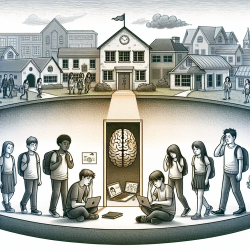Introduction
In the heart of Wales, a study has illuminated the critical role of physical activity (PA) and motor competence (MC) in the holistic development of children during their formative years. The research, "The Relationship between Physical Activity and Motor Competence of Foundation Phase Children in Wales during the School Day," sheds light on the predictors of PA and MC, providing a roadmap for educators and parents to foster a healthier, more active generation.
The Study at a Glance
The study involved 94 children from four schools in Wales, assessing their physical activity levels and motor competence using tools like the TGMD-2 and MABC-2. The findings were eye-opening: children spent nearly half of their school day in sedentary behaviors, with only 9.1% of the time dedicated to moderate to vigorous physical activity (MVPA). Moreover, 67% of children were below the 15th percentile in MC, highlighting a significant area for improvement.
Key Findings and Implications
- Sex Differences: Boys engaged more in MVPA, while girls spent more time in sedentary activities. Boys excelled in object control (OC) skills, whereas girls outperformed boys in locomotor skills.
- Predictors of Activity: OC skills and standing long jump were significant predictors of both sedentary behavior and MVPA. This underscores the importance of developing these skills early on.
- Role of Educators and Parents: Teachers and parents are pivotal in providing opportunities for physical activity. Structured environments that promote active play can significantly enhance motor competence.
Actionable Steps for Practitioners
Practitioners can draw from these findings to implement strategies that enhance motor skills and physical activity levels among children:
- Integrate Structured Play: Incorporate structured physical activities that focus on developing OC skills and locomotor skills. Activities like ball games, jumping exercises, and obstacle courses can be both fun and beneficial.
- Promote Inclusivity: Ensure that physical activities are inclusive, catering to the diverse needs and abilities of all children. This encourages participation and boosts confidence in their motor abilities.
- Engage Parents: Educate parents on the importance of motor skill development and encourage them to facilitate active play at home. Simple activities like playing catch or skipping can make a significant difference.
Encouraging Further Research
While this study provides valuable insights, it also opens the door for further research. Exploring the long-term impact of early motor competence on physical activity in adolescence and adulthood could provide deeper understanding and inform policy-making. Additionally, examining the role of cultural and environmental factors in shaping PA behaviors can offer a more comprehensive view.
To read the original research paper, please follow this link: The Relationship between Physical Activity and Motor Competence of Foundation Phase Children in Wales during the School Day.










